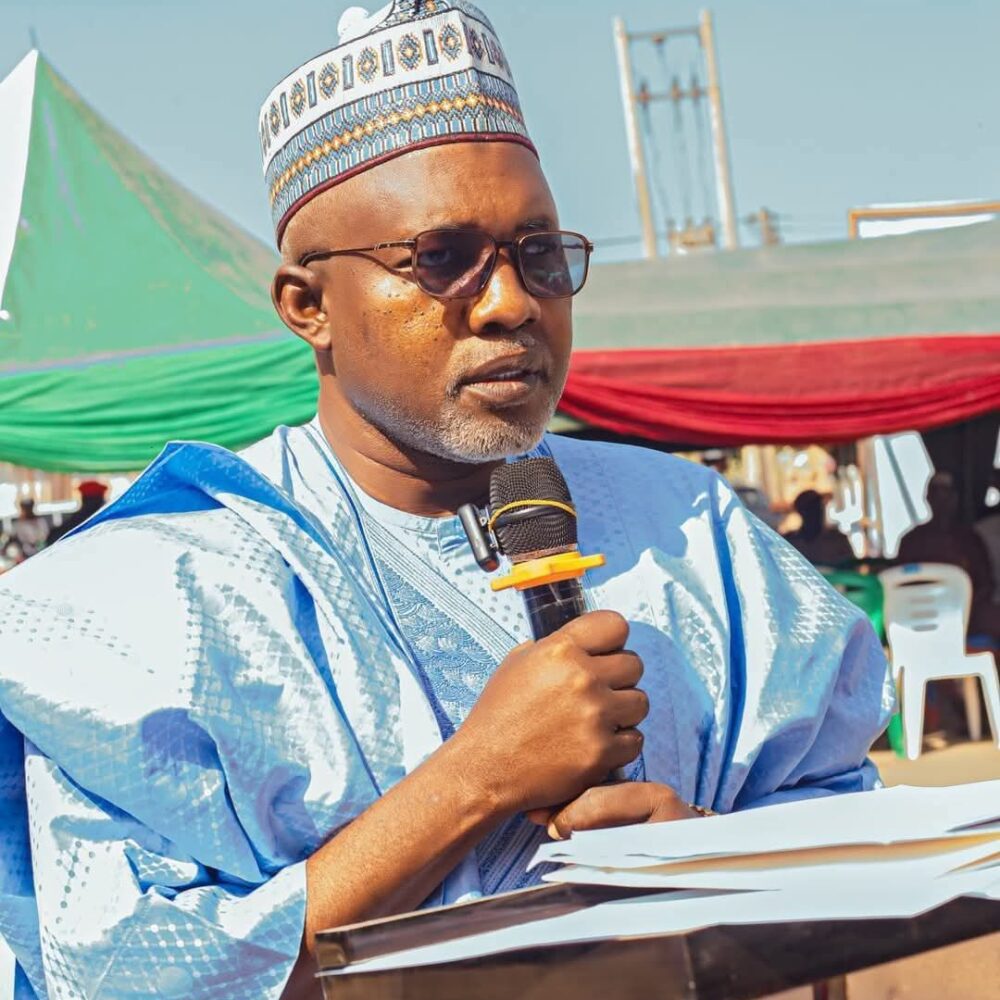By Abubakar Yusuf.
The regulatory, monitoring and supervisory roles of Financial Reporting Council FRC goes beyond making policy statements and thrusts, it also leverage on the best practices, as well as engaged the country in profitable and sustainable businesses that will drive the nation’s economy locally and internationally.
This was coming at a time when nations like Nigeria that are oil producing countries are divesting to source for more funds from non- oil producing sector to improve both local and foreign exchange.
Also at a period when the country’s economy is not certain owing to eight years leadership flaw on the part of the previous managers of our common resources and finances with the economy operating at a low ebb .
Envisaging the critical and crucial period when not managed properly with the deployment of “sustainability adoption roadmap” in line with the international practicing standards, will not only erode the gains already achieved over the years, but will affect its programs going forward in the next three years, which may lead to a quantum loss of over $20B equivalent to about 3 Trillion naira with the current unstable exchange rate , which will not augur well for the country.
The FRC Chief Executive who maintained that the only way out is to adopt the best practices which will affect positively the processing and trade acceptance in the Europe to ensure continuous relevance.
Efforts to nip in the bud deforestation and farm land management to enhance both capacity and large production of cocoa that is the bane of our high earnings of exchange rates must be guarded and guided, to avoid any form of leakages going forward.
Since the issue of sustainability is very important, it ought to be vigorously pursued to ensure maximum results through adequate adoption.
According to both local and foreign statistics by the International financial reporting standards IFRS and Nigeria’s National Board of Statistics , NBS, the success recorded over the years since 2022 could not be eroded on the altar of policy somersault and inconsistency.
Therefore, maintaining the success already recorded , the template of sustainability adoption roadmap, and adoption of the international best practices that will avoid deforestation and farm land management, embrace the practices and process of the European country, were our products are needed always.
While making efforts to ensure both administrative, legislative and modest framework are put in place , towards not only regulating and monitoring the transactions locally and internationally, but with a view to attracting more earnings to the country from the non- oil sector.
While adopting the needed policy framework and practices, the Executive Secretary bare his mind during an occasion.
He expressed thus;
“The Executive Secretary and Chief Financial Officer of the Financial Reporting Council of Nigeria, Rabiu Olowo, has said Nigeria is at risk of losing over $20bn in cocoa exports within the next three years.”
“He said the loss is likely to occur if the nation does not align with the sustainability adoption road map which will affect the processing and the trade acceptance of the product in Europe.”
“Olowo said this when the council received a delegation from the House of Representatives Committee on Commerce led by lawmakers representing Lere Federal Constituency in Kaduna State, Ahmed Munir, on Monday in Abuja.”
“He said adequate attention must be paid to deforestation and farmland management, as the issue of sustainability is very important.”
“Munir said, “It will interest you to note that the issue of sustainability is absolutely important, that’s why we’re driving it very, very rigorously.”
“Nigeria is on the brink of losing over $20 billion in cocoa exports within the next three years if we do not align ourselves with the processing and the reporting expectations of Europe.
“It’s our cocoa they use in making chocolates and all of that. But if you don’t pay attention to deforestation, the way you arrange your farmland, the way you process your, I mean, and all of these things, your products or how good will not be competitive, and that is the real issue.”
“According to CEPII research and expertise of the world economy, In 2022, Nigeria exported $489M in Cocoa Beans. The main destinations of Nigeria’s exports of Cocoa Beans were the Netherlands ($189M), Indonesia ($105M), Malaysia ($87.9M), Canada ($29.4M), and the United States ($16.9M). In 2022, Nigeria imported $47 in Cocoa Beans, mainly from Turkey ($47). These include Cocoa Beans (Raw/Roasted, Whole/Broken).”
“Similarly, data from the National Bureau of Statistics showed that in the first quarter of 2024, export of agricultural products was dominated by ‘Sesamum seeds’ valued at N247.75 billion, ‘Superior quality Cocoa beans,’ with N230.85 billion and ‘Standard quality Cocoa beans’ with N140.09 billion.”
“Further analysis showed that ‘Sesamum seeds’ worth N83.29 billion and N58.04 billion were exported to China and Japan, respectively while “Superior quality Cocoa beans, worth N112.00 billion and N48.28 billion were exported to The Netherlands and Malaysia respectively. Whereas; ‘Standard quality Cocoa beans’ worth N58.29 billion and N37.77 billion were exported to The Netherlands and Malaysia, respectively.”
“Olowo also disclosed that the FRC has also concluded talks with the Minister of Agriculture and the Minister of Environment, where they made very loud pronouncements and got good buying from corporate Nigeria to boost exports and increase foreign exchange earnings.”
“Enumeration achievements, Olowo said the council has achieved the full adoption of the international financial reporting standards,IFRS, amendment of the FRC act, establishment of two new directorates and implementation of the 2020 Audit regulations among others.”
“The committee is ready to ensure an ecosystem where the ease of doing business is critical and simplified and foreign direct investment is encouraged. The committee achieves this objective through oversight functions.”
“The committee has designed a four-year strategy plan to foster a legislative framework that would be a robust climate resilience commerce that would grow the economy.”
With the new approach and synergy with the relevant stakeholders including the federal lawmakers, no doubt that going forward, rather than operating on a loss , the country will improve on the previous success story spanned from 2022.





